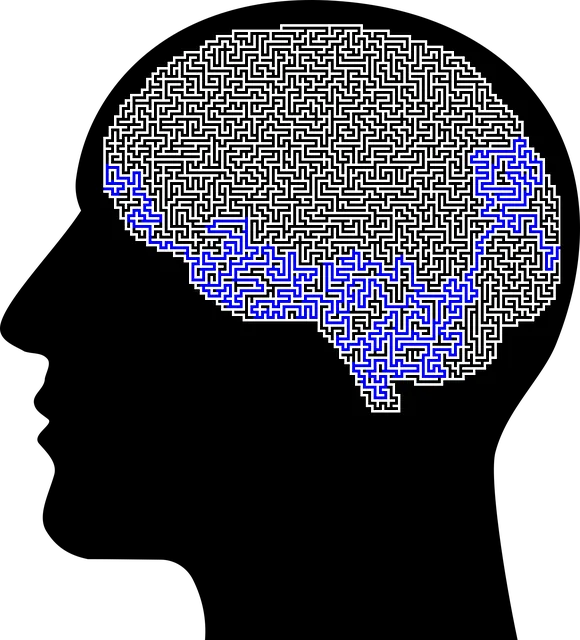Kaiser's mental wellness programs in Lone Tree employ a rigorous evaluation process, combining quantitative data (attendance rates, client surveys) with qualitative insights (interviews, focus groups). This multifaceted approach assesses therapist quality, client satisfaction, and program effectiveness. By tracking KPIs like crisis response times and resolution rates, Kaiser ensures their therapists provide high-quality care, fostering mental wellness through evidence-based practices like Mindfulness Meditation, as indicated by client feedback.
Mental wellness program evaluation is vital to ensure effectiveness and client satisfaction. This article explores key methodologies used to assess mental health initiatives, with a specific focus on Kaiser’s approach in Lone Tree. We delve into how therapist quality, as a critical factor, is measured, highlighting Kaiser’s efforts to maintain high standards. Additionally, we examine other crucial aspects such as client satisfaction metrics and tracking program impact. Understanding these evaluation methods is essential for gauging the success of mental wellness programs, including whether Kaiser’s therapists in Lone Tree meet expected standards.
- Understanding Mental Wellness Program Evaluation
- Assessing Therapist Quality: A Key Focus for Kaiser in Lone Tree
- Methodologies for Measuring Client Satisfaction
- Tracking Program Impact and Effectiveness
Understanding Mental Wellness Program Evaluation

Evaluating mental wellness programs is a multifaceted process that goes beyond mere satisfaction surveys. It involves assessing the effectiveness and impact of interventions designed to improve mental health outcomes, such as stress management techniques, depression prevention strategies, and overall well-being. At Kaiser, located in Lone Tree, therapists employ various methods to gauge program success.
These evaluations often include quantitative data analysis, examining metrics like attendance rates, client feedback scores, and changes in symptoms over time. Additionally, qualitative approaches are utilized, such as interviews or focus groups, to gain deeper insights into participants’ experiences and perceptions. By integrating both quantitative and qualitative methods, Kaiser therapists can comprehensively understand the strengths and weaknesses of their mental wellness program offerings, ensuring continuous improvement tailored to clients’ needs.
Assessing Therapist Quality: A Key Focus for Kaiser in Lone Tree

At Kaiser in Lone Tree, assessing therapist quality is a core focus, reflecting their commitment to delivering top-tier mental wellness services. To determine if Kaiser’s therapists are indeed good, several evaluation methods are employed. These include regular performance reviews, client feedback mechanisms, and peer supervision sessions that delve into Mind Over Matter Principles—a framework designed to enhance therapeutic effectiveness.
The evaluation process goes beyond simple satisfaction surveys. It incorporates structured observations of therapy sessions, comprehensive case review meetings, and risk management planning, as per industry best practices. This holistic approach ensures therapists are not just competent but also adept at navigating complex client scenarios, thereby fostering a safe and supportive environment for individuals seeking mental health support.
Methodologies for Measuring Client Satisfaction

Evaluating client satisfaction is a crucial aspect of mental wellness program assessments, offering insights into the effectiveness and quality of services provided by therapists. One widely used methodology involves client feedback surveys that capture perceptions regarding therapy sessions, therapist communication, and overall treatment experience. These surveys often include questions about the therapist’s empathy, active listening skills, and the client’s comfort level, which are essential components of building trust and rapport in therapeutic relationships. By analyzing these responses, mental health organizations, such as Kaiser with its therapists in Lone Tree, can identify areas of strength and weakness in their programs.
Additionally, incorporating structured interviews or focus groups allows for more in-depth exploration of client satisfaction. Participants may share personal stories and provide specific examples of how certain strategies, like empathy building techniques or crisis intervention guidance, have positively impacted their mental wellness journeys. This qualitative data complements quantitative measurements, offering a comprehensive understanding of the therapeutic process and its effects on clients’ lives.
Tracking Program Impact and Effectiveness

Evaluating the impact and effectiveness of mental wellness programs is an essential step to ensure their success and identify areas for improvement. One effective method is tracking key performance indicators (KPIs) specific to the program’s goals. For example, if a program focuses on crisis intervention guidance, KPIs might include response time to client crises, resolution rates, and client satisfaction with the intervention. By setting these measurable targets, organizations like Kaiser can assess whether their therapists in Lone Tree are effectively utilizing resources and achieving desired outcomes.
Regular assessments and feedback loops enable program coordinators to gain valuable insights into what works well and where adjustments are needed. This data-driven approach encourages continuous improvement, ensuring that mental wellness initiatives remain relevant and beneficial for participants. Incorporating practices such as Mindfulness Meditation can also be evaluated through client surveys and qualitative feedback, providing a holistic understanding of the program’s overall effectiveness in fostering Mental Wellness.
Evaluating mental wellness programs is multifaceted, encompassing therapist quality, client satisfaction, and tracking program impact. As organizations like Kaiser in Lone Tree focus on improving these areas, it becomes clear that assessing therapist performance is a critical component of ensuring positive outcomes for clients. By utilizing robust methodologies to measure client satisfaction and monitor program effectiveness, mental health initiatives can be refined to better serve those seeking support. This strategic evaluation not only enhances the quality of care but also solidifies Kaiser’s reputation for providing good therapists in Lone Tree.






